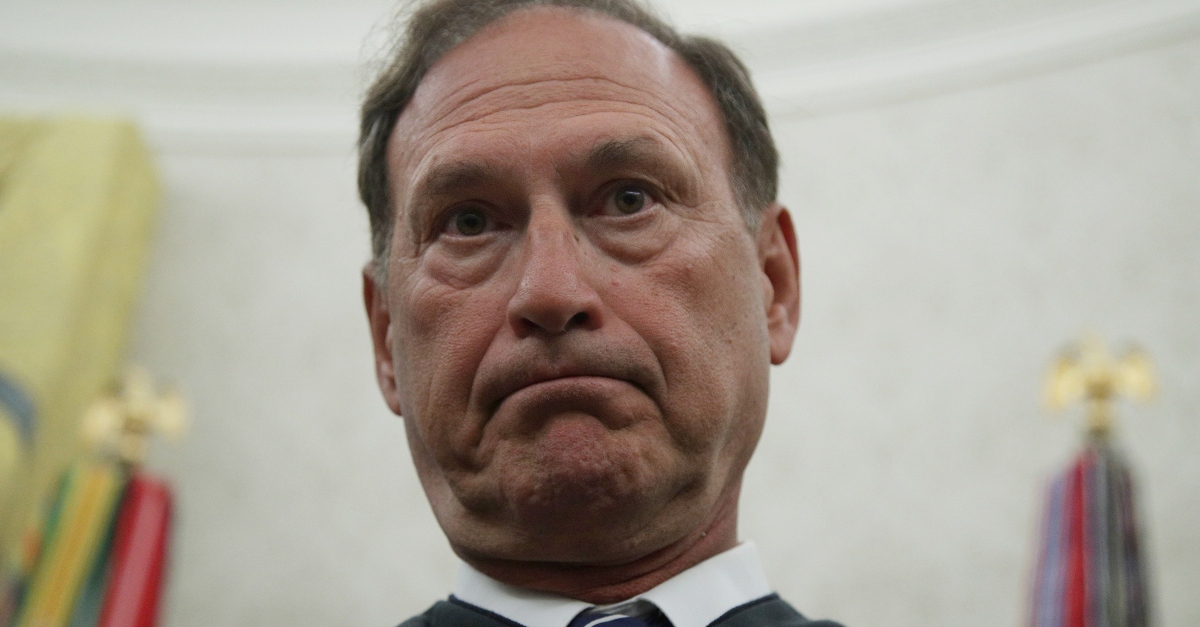
U.S. Supreme Court Justice Samuel Alito in 2019.
Supreme Court Justice Samuel Alito just moved up the deadline for Pennsylvania officials to submit response briefs in U.S. Rep. Mike Kelly‘s lawsuit to overturn the state’s vote certification and toss mail-in ballots. Crucially, the new time–Tuesday at 9 am.–takes place before the “safe harbor” deadline, by which states must present electors to be accepted by Congress. That means it is within the realm of possibility for the nation’s highest court to intervene before time runs out, but there’s a big difference between possible and likely.
Professor Steve Vladeck of the University of Texas School of Law argued in a tweet thread on Sunday that “none of this matters—or is going to matter.”
Pennsylvania has already certified its election results. Even if Kelly, a Republican lawmaker for state’s 16th district, got his way, then President-elect Joe Biden would still have 286 electoral votes. That is enough to meet the 270 he needs to formally cinch victory when the Electoral College meets on December 14.
On top of that, Kelly’s application for an emergency injunction is unlikely to succeed in the first place, Vladeck says. The congressman is arguing that Act 77, a pre-COVID law that expands mail-in voting, violated the state constitution. Under the doctrine of laches, the Pennsylvania Supreme Court ruled that the plaintiff should have brought this claim forward sooner.
6. Even if there was anything to this (and there isn’t; due process doesn’t mean you can sue whenever you want), that’s not actually a basis to undo PA’s certification; it’s just an argument that the PA Supreme Court should have decided Kelly’s constitutional claim on the merits.
— Steve Vladeck (@steve_vladeck) December 6, 2020
“One correction: The PA Supreme Court has *not* resolved a facial challenge to Act 77’s expansion of mail-in voting (it’s rejected *other* challenges to Act 77),” Vladeck wrote. “That doesn’t change anything, because whether Act 77 violates the PA Constitution is still a question of *PA* law.”
In other words, the U.S. Supreme Court lacks the jurisdiction to issue an injunction.
So why did Alito change the briefing deadline to take place before safe harbor?
“My best guess is to avoid claims that he deliberately ran out the clock (including from his colleagues),” Vladeck wrote. “That doesn’t mean an injunction is coming.”
Professor Rick Hasen–an election law expect at at the University of California, Irvine–concurred.
“This timing allows the Court at least in theory to issue some relief by the end of safe harbor day,” he wrote in a post Sunday morning. “I would not read too much into this. It shows more respect to the petitioners, and does not make it look like the Court is simply running out the clock on the petition.”
[Image via Alex Wong/Getty Images]